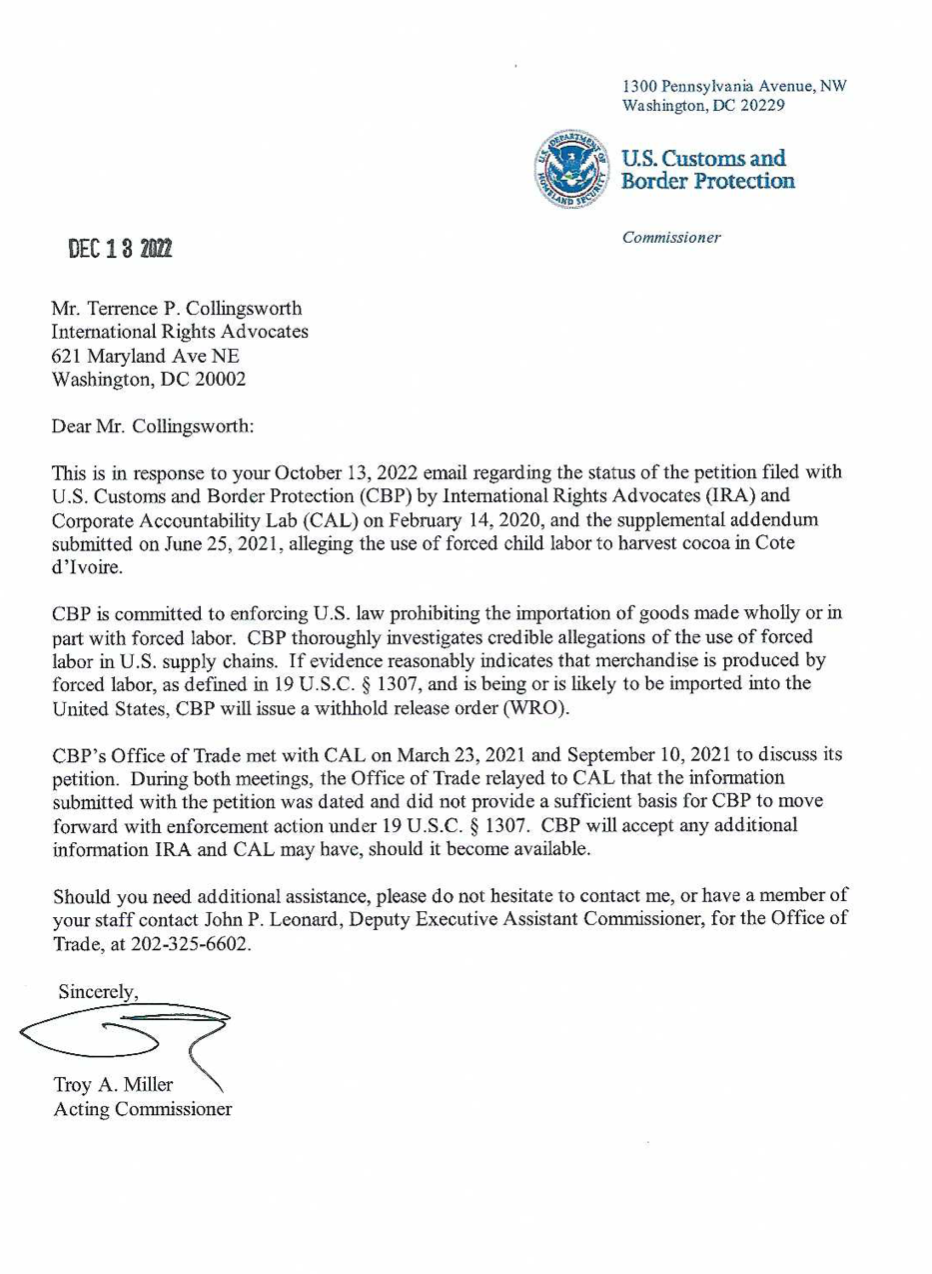The US Customs and Border Protection Agency is sitting on something that could really help.
The Department of Labor has cocoa listed as a child labor and forced child labor commodity. The industrial chocolate industry knows this as they clearly admit it is part of their supply chain and promised to clean this up in 2001 when it signed the Harkin Engel Protocol. Unfortunately, it hasn’t. Despite a slew of paltry initiatives, no positive change as been recorded. What has been documented by the Department of Labor is that the number of exploited children in the cocoa sector of Ghana and The Ivory Coast has risen.
But get this, the US Customs and Border Patrol Agency is supposed to issue an embargo and halt the import of these beans. It’s law. But despite and endless amount of outreach including a detailed petition, they haven’t done their job.
Below are the screen shots to a response that International Rights Advocates receive over 2 years after they filed a detailed petition.
After working on this issue for 16 years now, I really believe that halting these beans would help inspire the complicit industrial chocolate companies to fulfill the promises they not only gave to these children but the rest of the world.
Ayn Riggs
Director Slave Free Chocolate




